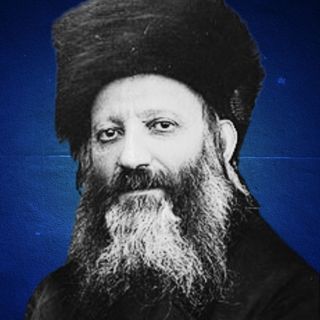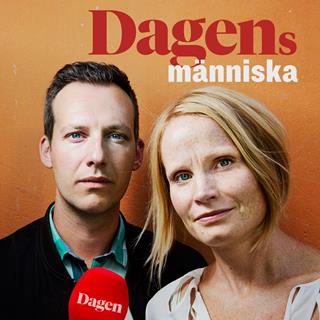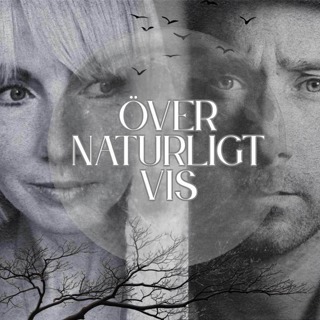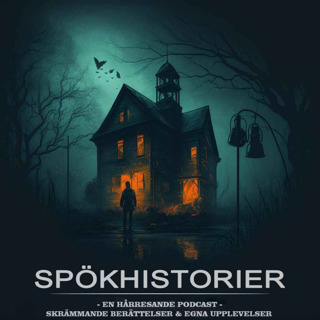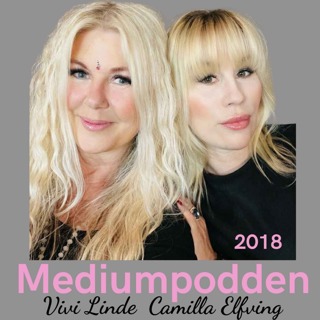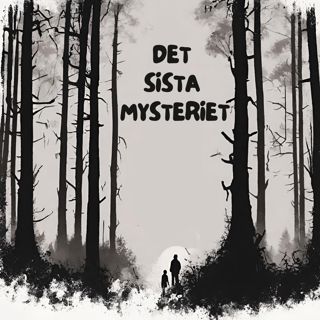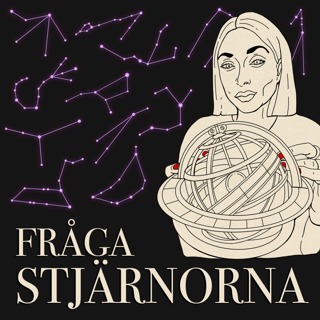![A Haredi Mother Sending Her Children To Serve [Divergence 4/5]](https://cdn.podme.com/podcast-images/D79089FBEF78B78B9B1A2A8AFD27F6A1_small.jpg)
A Haredi Mother Sending Her Children To Serve [Divergence 4/5]
Our Intergenerational Divergence series is sponsored by our friends Sarala and Danny Turkel.In this episode of the 18Forty Podcast, we talk to a Haredi mother named Dina about her two children who serve in the IDF, one of whom was critically wounded in the current war. Oct. 7 accelerated the already-complicated conversation about Haredi service in the army. Here, Dina shares with us her first-hand experience as a mother of chayalim. In this episode we discuss:What is it like being in the Haredi minority of IDF parents—and what is it like being one of the comparatively few IDF parents in the Haredi community? What is the experience of religiously raised soldiers remaining observant in the army?What is it like for a mother to send her son into battle?Tune in to hear a conversation about how we might, as Dina puts it, be machmir about how we relate to others. Interview begins at 7:16.References:“A Mother’s Miracle” by Sara BonchekBook Journeys are already back—and we're making them better than ever. We're partnering with Maggid Books, an imprint of Koren Publishers, to ship the books directly to you for an exclusive low price. Until April 24, all the books can be purchased and delivered to your home for $20 per book, or $60 for all three! Get your books and sign up on our website. Become a supporter of this podcast: https://www.spreaker.com/podcast/18forty-podcast--4344730/support.
16 Apr 20241h 8min
![Finding a Home for Haredi IDF Soldiers [Divergence 3/5]](https://cdn.podme.com/podcast-images/D79089FBEF78B78B9B1A2A8AFD27F6A1_small.jpg)
Finding a Home for Haredi IDF Soldiers [Divergence 3/5]
Our Intergenerational Divergence series is sponsored by our friends Sarala and Danny Turkel.This episode is sponsored by the incredible organization Osey Chail, a non-profit organization serving lone soldiers from Haredi and Hasidic homes who are serving in the IDF. In this episode of the 18Forty Podcast, we talk to four Haredi soldiers who served in the IDF about breaking from family and communal expectations by enlisting, and the subsequent Intergenerational implications. We also speak with Yael Ruzievich of the “adoptive family” of lone soldier David Mittelman, who was killed on Oct. 7. Hashem yikkom damo. In this episode we discuss:How do soldiers from the Haredi world relate to their parents after joining the IDF?What does the “adoptive family” of a Haredi lone soldier look like? How can we do more for those who make immense sacrifices to defend the Jewish People?Tune in to hear a conversation about how to handle divisive debates—such as Haredim enlisting for Israeli military service—as a unified Jewish family. First soldier interview begins at 16:47.Second soldier interview begins at 26:06.Interview with Yael Ruzievich begins at 50:46.Third soldier interview begins at 1:32:01.Fourth soldier interview begins at 1:40:45.Haredi soldiers are in a difficult place, often struggling with a lack of social and familial support, due to their community’s stance on army service. The organization Osey Chail fills this gap, supporting soldiers from Haredi backgrounds with kosher food, foster families, apartments, and unity events, among other programs. We’re honored to speak to Haredi soldiers who were part of Osey Chail, as well as families that adopted them.References:Shomer YisraelOsey Chailנגמר by Idan AmediDonate Dog TagsDonate Toward Mittelman ParkPesach is approaching—and Twillory has what you need. New customers can use the coupon code 18Forty to get $18 off of orders of $139 or more. (Keep an eye out for their one-of-a-kind Air Suits.)Become a supporter of this podcast: https://www.spreaker.com/podcast/18forty-podcast--4344730/support.
9 Apr 20242h 16min
![Haskel and Josh Lookstein: Finding Your Path in a Rabbinic Dynasty [Divergence 2/5]](https://cdn.podme.com/podcast-images/D79089FBEF78B78B9B1A2A8AFD27F6A1_small.jpg)
Haskel and Josh Lookstein: Finding Your Path in a Rabbinic Dynasty [Divergence 2/5]
Our Intergenerational Divergence series is sponsored by our friends Sarala and Danny Turkel.A pre-Pesach message from our partners at Twillory: You can use the coupon code PESACH18 for $18 off all orders of $250 or more, or use the coupon code PESACH36 for $36 off all orders of $350 or more..In this episode of the 18Forty Podcast, we sit down with an intergenerational rabbinic pair: Rabbi Haskel Lookstein and his son, Rabbi Joshua Lookstein.Following in the footsteps of a successful parent can involve a crushing degree of pressure. In the Jewish world, perhaps the quintessential case of this is the challenge of being the scion of a prominent rabbinic family (what some might call a “dynasty”). In this episode we discuss:How did family, friends, and congregants react to Joshua leaving the family pulpit? How can children find agency amid family expectations?How do leaders of Jewish institutions manage the most foundational Jewish institution: the family? Tune in to hear a conversation about how we can grapple wisely with professional divergence across generations.Interview begins at 12:53.Rabbi Dr. Haskel Lookstein is the Rabbi Emeritus of Kehilath Jeshurun in Manhattan, where he served most of his entire rabbinic career. He was also the principal of the Ramaz School from 1966 through 2015. R. Lookstein has been highly involved in leadership in the Jewish community for decades. He serves as the Joseph H. Lookstein Professor of Homiletics at Yeshiva University, where he has taught since 1979. He also serves as a Vice President of the Bet Din of America. Rabbi Joshua Lookstein is the Associate Head of School at the Ramaz School. Rabbi Lookstein previously served as the Head of School at Westchester Day School and a Major Gifts Officer at UJA-Federation of New York, and as Executive Director of the S. Daniel Abraham Foundation. Rabbi Lookstein is responsible for ensuring the values of the school are sustained throughout a student’s education.References:“The Lookstein Legacy: An American Orthodox Rabbinical Dynasty?” by Adam S. FerzigerThe Shawshank RedemptionWhy We Sleep by Matthew WalkerThis episode is sponsored in honor of Robert and Sandy April, loyal congregants and students of Rabbi Lookstein for many years. May they continue to learn from Rabbi Lookstein's lessons and actions for many years to come.Become a supporter of this podcast: https://www.spreaker.com/podcast/18forty-podcast--4344730/support.
2 Apr 20241h 17min
![Rachel Yehuda: Intergenerational Trauma and Healing [Divergence 1/5]](https://cdn.podme.com/podcast-images/D79089FBEF78B78B9B1A2A8AFD27F6A1_small.jpg)
Rachel Yehuda: Intergenerational Trauma and Healing [Divergence 1/5]
This series is sponsored by our friends Sarala and Danny Turkel.This episode is sponsored by Twillory. New customers can use the coupon code 18Forty to get $18 off of all orders of $139 or more. In this episode of the 18Forty Podcast, we pivot to Intergenerational Divergence by talking to Rachel Yehuda, a professor of psychiatry and neuroscience, about intergenerational trauma and intergenerational resilience. In many ways, Oct. 7 reactivated a sense of Jewish trauma that many of us had never experienced in our lifetimes. And yet, it was a feeling that we somehow felt we were returning to as Jews. In this episode we discuss:How does trauma get passed on across generations? How do the Jewish holidays teach us to cultivate resilience from within trauma? How can the Jewish community be more adept at handling traumatic events?Tune in to hear a conversation about how, together, we find the courage to continue.Interview begins at 11:01.Dr. Rachel Yehuda is a professor of psychiatry and neuroscience, the vice chair for veterans affairs in the psychiatry department, and the director of the traumatic stress studies division at the Mount Sinai School of Medicine. Dr. Yehuda also established and directs the Center for Psychedelic Psychotherapy and Trauma Research. Dr. Yehuda’s research on second-generation Holocaust survivors, showing the epigenetic effects of trauma across generations, has made her a seminal figure in the field of intergenerational trauma and resilience.References:“The Rabbi vs. the Jewish People” by David Bashevkin“Yonatan Adler: What Archeologists Find”“Hazon Ish on Textual Criticism and Halakhah” by Zvi A. Yehuda“Hazon Ish on the Future of the State of Israel” by Zvi A. YehudaThe Body Keeps the Score: Brain, Mind, and Body in the Healing of Trauma by Bessel van der KolkTrauma and Recovery: The Aftermath of Violence—from Domestic Abuse to Political Terror by Judith Herman “Resilience definitions, theory, and challenges: interdisciplinary perspectives” by Rachel Yehuda and more“What We Talk About When We Talk About Anne Frank” by Nathan EnglanderBecome a supporter of this podcast: https://www.spreaker.com/podcast/18forty-podcast--4344730/support.
26 Mars 202457min
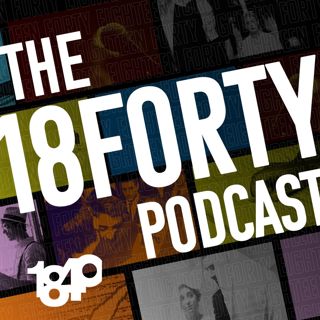
Yael Muskat and Martin Galla: Entering Adulthood: Inside a College Counseling Center
Our mental health series is sponsored by Terri and Andrew Herenstein.In this episode of the 18Forty Podcast, we wrap up our mental health series by talking to Dr. Yael Muskat, director of Yeshiva University’s Counseling Center, and her longtime colleague Dr. Martin Galla about the mental health challenges at the forefront of early adulthood.Young people in the Jewish community are not immune from today’s mental health crisis. They have their own, equally pressing versions of those same problems. In this episode we discuss:How do experts deal with the mental health of college students “in between” childhood and adulthood?What mental health challenges to the Jewish world in particular need to address?How can young adults handle the mental health turmoil that can come with dating?Tune in to hear a conversation about how we can get to a place where sound mental health enables spiritual growth. Interview with Dr. Muskat begins at 7:13.Interview with Dr. Galla begins at 55:46.Dr. Yael Muskat, Psy.D., is the Director of the Counseling Center at Yeshiva University and has over 20 years of clinical experience. After graduating from Yeshiva University, she received a Master’s in Special Education from Columbia University and a Doctorate in Clinical Psychology from Long Island University, C.W. Post. Dr. Muskat continued her clinical training by completing a Post Doctorate Leadership Fellowship at Westchester Institute for Human Development. Dr. Martin Galla is a former associate director at the Yeshiva University Counseling Center, where he worked for 13 years. References:Hold Me Tight: Seven Conversations for a Lifetime of Love by Sue JohnsonThe Body Keeps the Score: Brain, Mind, and Body in the Healing of Trauma by Bessel van der KolkThe Mindfulness Workbook for OCD: A Guide to Overcoming Obsessions and Compulsions Using Mindfulness and Cognitive Behavioral Therapy by Jon Hershfield and Tom CorboyEinstein's Dreams by Alan LightmanBerakhot 12bBecome a supporter of this podcast: https://www.spreaker.com/podcast/18forty-podcast--4344730/support.
19 Mars 20241h 58min
![Regine Galanti: Childhood: Addressing Children’s Mental Health [Mental Health 5/6]](https://cdn.podme.com/podcast-images/D79089FBEF78B78B9B1A2A8AFD27F6A1_small.jpg)
Regine Galanti: Childhood: Addressing Children’s Mental Health [Mental Health 5/6]
Our mental health series is sponsored by Terri and Andrew Herenstein.This episode is sponsored by Twillory. New customers can use the coupon code 18Forty to get $18 off of all orders of $139 or more. In this episode of the 18Forty Podcast, we talk to Regine Galanti—a licensed psychologist who specializes in treating anxiety, OCD, and behavior problems in children, teens, and adults—about mental health treatment among today's Jewish families.It’s a relatively recent phenomenon in Jewish history that our material needs are largely taken care of. While this is a tremendous blessing, it’s redirected our attention to the psychological needs toward the top of Maslow's hierarchy. This is a kind of suffering that many of us are still learning how to handle, and that we anguish over figuring out how to address in our children. In this episode we discuss:What is going on with young people and mental health, and how can we help our children thrive?How can we contend with the mental health blessings and curses that come with modernity?What should we do when we are depressed or anxious?Tune in to hear a conversation about how we might go from doom-scrolling about mental health to taking meaningful action.Interview begins at 19:48.Dr. Regine Galanti, Ph.D. is a licensed psychologist who specializes in treating anxiety, OCD, and behavior problems in children, teens, and adults. She is an expert in Cognitive Behavioral Therapy (CBT) and Parent-Child Interaction Therapy (PCIT). Dr Galanti is the founder of Long Island Behavioral Psychology, a therapy practice in Nassau County, Long Island, and is an Educational Consultant in the Psychiatry Department of Mount Sinai Hospital. She is the author of Anxiety Relief for Teens: Essential CBT Skills and Mindfulness Practices to Overcome Anxiety and Stress, as well as When Harley Has Anxiety: A Fun CBT Skills Activity Book for Overcoming Worries and Fears. References:“Why the Kids Aren't Alright” with Bari Weiss“How Anxiety Became Content” by Derek ThompsonBreaking Free of Child Anxiety and OCD by Eli R. LebowitzThe Explosive Child by Ross W GreeneThe Happiness Trap by Russ Harris10% Happier by Dan HarrisBecome a supporter of this podcast: https://www.spreaker.com/podcast/18forty-podcast--4344730/support.
12 Mars 20241h 20min
![Yoni Rosensweig: How Does Mental Health Affect Halacha? [Mental Health 4/6]](https://cdn.podme.com/podcast-images/D79089FBEF78B78B9B1A2A8AFD27F6A1_small.jpg)
Yoni Rosensweig: How Does Mental Health Affect Halacha? [Mental Health 4/6]
Our mental health series is sponsored by Terri and Andrew Herenstein.This episode is sponsored by Twillory. New customers can use the coupon code 18Forty to get $18 off of all orders of $139 or more. In this episode of the 18Forty Podcast, we talk to Yoni Rosensweig, rabbi of the Netzah Menashe community in Beit Shemesh, about the intersection between mental health and halacha. It is tempting to sometimes see halacha and mental health as being at odds. But what if, with the right guidance, we could instead understand halacha to be a system that sees the fullness of our unideal circumstances and draws us closer to God in spite of it all? In this episode we discuss:How might we enable people who are suffering mentally to live fully halachic lives?How can a rabbi apply modern knowledge of mental health to centuries-old rabbinic texts?How can we benefit from halacha even—especially—amid our difficulties?Tune in to hear a conversation about how halacha has more to offer us than we might expect.Interview begins at 12:25.Rabbi Yoni Rosensweig is rabbi of the Netzah Menashe community in Beit Shemesh, Israel. Previously, he served as Rosh Yeshiva of Yeshivat Shevut Yisrael in Efrat. Rabbi Rosensweig is the author of several books including the recent Nafshi Beshe’elati on Jewish law and mental health.References:נפשי בשאלתי - הלכות בריאות הנפש by Yoni Rosensweig The Body Keeps the Score: Brain, Mind, and Body in the Healing of Trauma by Bessel van der Kolk@tzvei_dinimBecome a supporter of this podcast: https://www.spreaker.com/podcast/18forty-podcast--4344730/support.
5 Mars 20241h 4min
![Elie Schulman: Does Therapy Work? A Patient’s Journey [Mental Health 3/6]](https://cdn.podme.com/podcast-images/D79089FBEF78B78B9B1A2A8AFD27F6A1_small.jpg)
Elie Schulman: Does Therapy Work? A Patient’s Journey [Mental Health 3/6]
Our mental health series is sponsored by Terri and Andrew Herenstein.This episode is sponsored by someone supporting 18Forty’s work.In this episode of the 18Forty Podcast, we listen in on a conversation between David Bashevkin and his dear and longtime friend Elie Schulman about the value of therapy.In a culture in which we can feel we’re constantly being sized up and evaluated by others, accepting our own vulnerability can be one of the hardest things to do. In this episode we discuss:How can someone know it’s time to get therapy?How can we get beyond excessively comparing ourselves with our peers?What does it mean to “lift up” a friend?Tune in to hear a conversation about how seeking help can be a sign and source of strength.Interview begins at 11:29.References:Pirkei Avot 1:6Curb Your EnthusiasmThe Wisdom of No Escape and the Path of Loving-Kindness by Pema ChodronThe Drama of the Gifted Child: The Search for the True Self by Alice MillerwWaking Up by Sam HarrisDavid Bashevkin on That’s An Issue“Failure Goes to Yeshivah: What I’ve Learned From the Failure Narratives of My Students” by David Bashevkin“On Campus, Failure Is on the Syllabus” by Jessica BennettBecome a supporter of this podcast: https://www.spreaker.com/podcast/18forty-podcast--4344730/support.
27 Feb 20241h 15min
